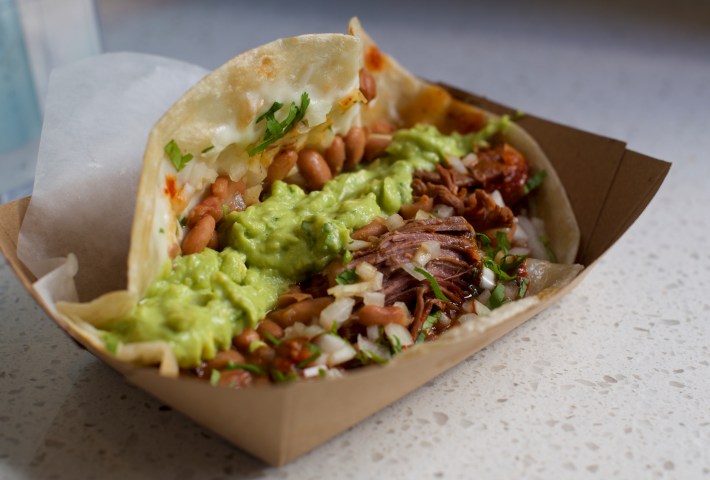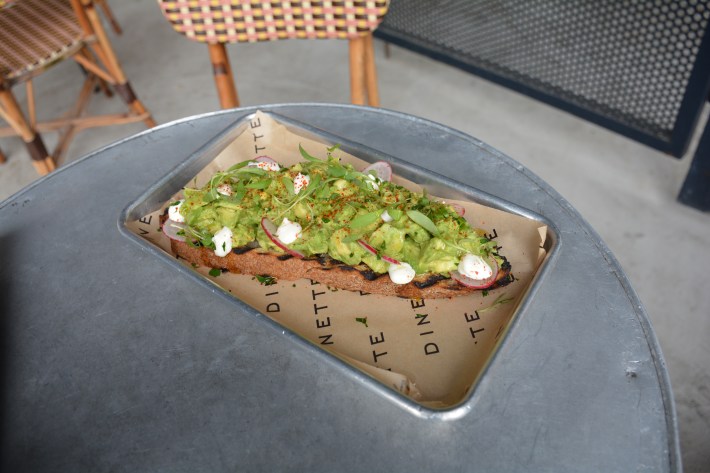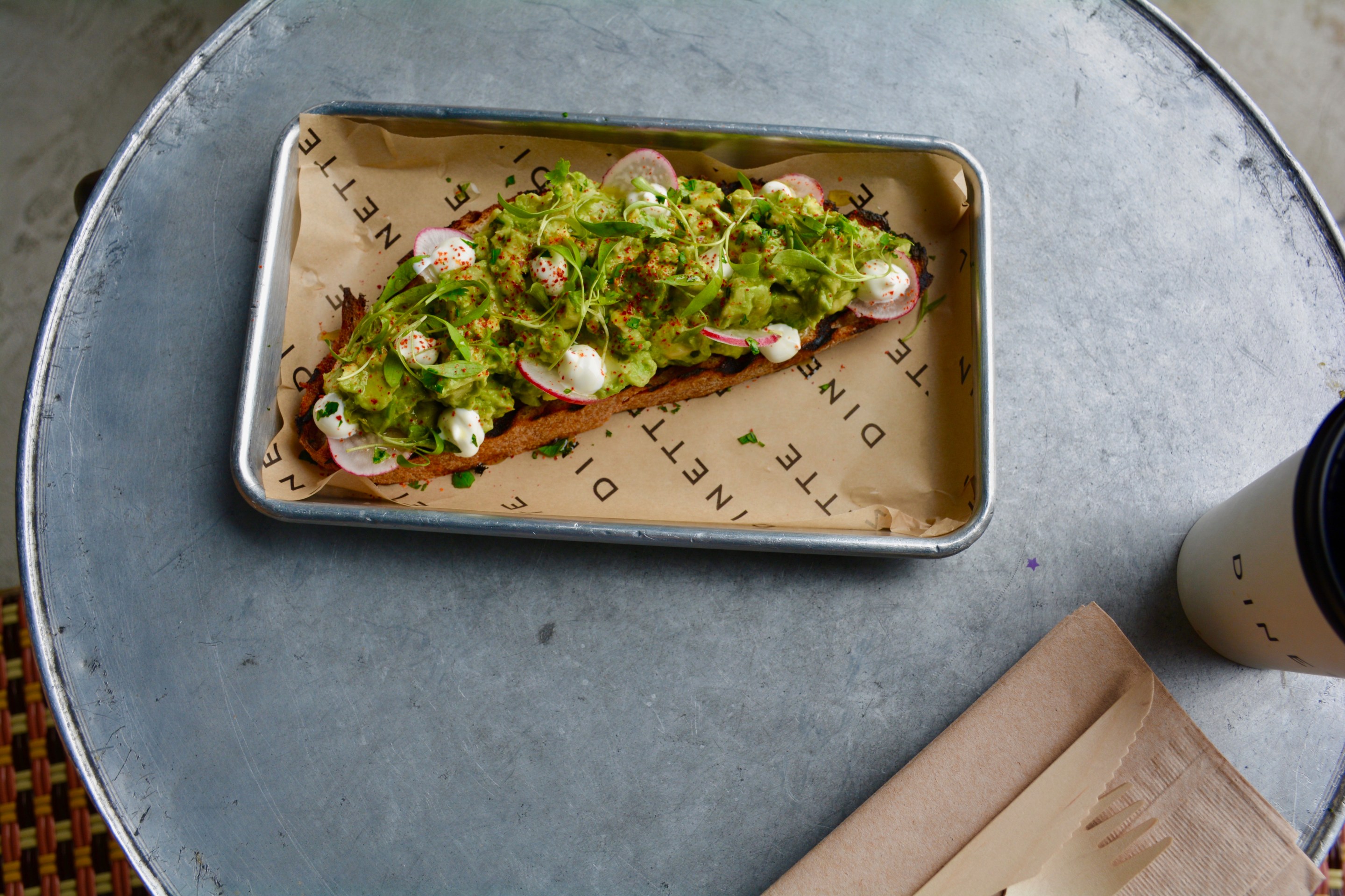[dropcap size=big]I[/dropcap]n Southern California, avocados are a way of life.
For those of us who grew up here, we were always one cousin’s friend or a tia away from a big bag of fresh avocados grown in someone’s backyard. At backyard family gatherings, a big bowl of mom’s chunky guacamole to slather all over your makeshift carne asada tacos was always guaranteed to be there, just as Art Laboe dedications are on the radio every weekend, or hearing the firework booms over the Chavez Ravine echo throughout the city every Friday in the summer. Avocados are simply part of who we are as Angelenos.
After Mexico, where the first avocado originated, you can thank L.A. County’s deep east neighborhood of La Habra Heights for this little piece of green, buttery heaven on earth for being such a staple of California culture.
Hass, which is the avocado variety we mostly eat and hoard when they are on sale at the market, began with the mailman and amateur horticulturist Rudolph Hass. He first grew the fruit, then later brought the fruit to the market for mass consumption creating an economic boom. Today the Hass avocado makes up for 95 percent of the global market and it is estimated that Americans spend $900,000 a month on the spreadable green gold.
RELATED: Why Lemons Now Replace Limes At Taco Trucks Every Spring
But given this rate and demand, one question remains: Are avocados sustainable and can it keep up? The answer is dependent on a few things. Do you buy it in season? Do you eat them as a treat or as an everyday staple? Will we hybridize avocados to higher-yielding and drought-friendlier varieties fast enough to keep up with our insatiable demand?
Eric Focht who is a staff research associate in the lab of Mary Lu Arpaia at UC Riverside through UC Agriculture and Natural Resources and the Department of Botany and Plant Sciences tells L.A. Taco that the recent avocado economy boom is “similar to what we see today with something like bitcoin.” He helps run a breeding program at UCR studying different avocados varieties, focusing mostly on Hass avocados but also looking at other less known versions of the popular fruit.

In short, he is working on breeding the perfect avocado that tastes great and is easier, faster, and less water-dependent to grow. This year is shaping out to be a good one for avocados, but this issue is always one to keep in mind.
Focht states that in the future, there will likely be more variety available in the mainstream marketplace. One varietal that Focht gets excited about is the Reed avocado which has now been popping up in places such as Whole Foods. It’s known for its round, dinosaur egg shape and is about the size of a softball. It has a relatively large seed but the edible flesh is sometimes double or even triple that of a Haas that can make a lot more people happier per individual fruit.
Avocados are ingrained in the DNA of the city, along with other iconic things like year-round sunshine, traffic, and Venice Beach.
Over time, this small reduction in avocado-per-person savings can add up and has the potential to help balance the avocado equilibrium in the marketplace. While avocados don’t require as much water per pound as almonds, they do require more than other kinds of fruit. You can plant and harvest two peach trees for the watering price of one avocado tree, or up to six orange trees.
Also important to note: In California, the Hass avocado does have a season, contrary to popular belief that we get them year round. It usually lasts from January through June. Typically, the avocados that you see in the market throughout the rest of the year come from Mexico or other parts of Latin American, and the heavy carbon footprint that comes when you ship out heavy fruit like that into the US.
Now for the inevitable part of a story involving avocados and Los Angeles: avocado toasts.
At Dinette in Echo Park, the topic of avocado smashed on a piece of crusty bread is a polarizing one for head chef James Seitz. With all the hype he has received for it, Chef James is reluctant to wear the crown of his achievements in the avo toast pantheon. According to Setiz, the phenomenon is “...Not new by any stretch.”
RELATED: Vincent Price’s Guacamole Recipe
As a fifth-generation Los Angeleno native who grew up eating avocado on nearly everything, Seitz informs L.A. Taco that the secret to his lauded toast is mayonnaise. Mix equal parts pureed avocado and mayonnaise with a pinch of salt, a squeeze of lemon, and the occasional dash of Tabasco sauce. Then just smear as much as you can afford on your favorite piece of good bread. This recipe was inspired by his father’s recipe for avocado toast since way before it was cool, of course.
While Seitz admits his opinions on the popular snack are complicated, he understands his role as a conduit is giving the people exactly what they want. “[Being from Los Angeles]...we have a really good avocado game. We bring it.,” he says. “I’ll put California Hass avocados against anybody’s avocado. They are beautiful when you get them ripe during the right type of season…it’s something to be proud of.
The secret to [Dinette's] lauded toast is mayonnaise.
His theory on why it’s become one of the most Instagrammed L.A. dishes of all time? Avocados are ingrained in the DNA of the city, along with other iconic things like year-round sunshine, traffic, and Venice Beach, so it only makes sense that both visitors and new residents are uncontrollably attracted to the dish. He serves a lot of tourists who walk over from their AirBnBs nearby, so he may be onto something.

At the same time realizes that the keeping up with the demand does have its own costs. He has seen avocado prices skyrocket. Even with inflated prices, people will still shell out those extra big bucks to enjoy the creamy fruit. Still, he would like to remind everyone that avocados don’t always taste good in everything. For example, it does not take to being cooked or baked, especially on a pizza, as much as people try to get to do that. (Setiz mentioned later he was okay with fresh slices atop a hot pie after it has been baked such as the Luggage Room in Pasadena.)
In many ways, the avocado itself serves as the perfect metaphor of what it means to be from Los Angeles, with its deep Mexican roots that go back for generations not to mention their increasingly global appeal what better way to flex your city pride?







